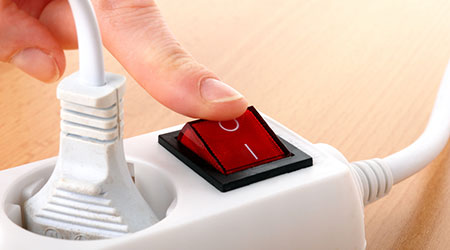Q: I need some insight on a debate within our organization. Our life-safety team member has made the statement that we can use a power strip within the operating room, in the patient care vicinity, as long as it is attached to a rack/cart/table etc. (obviously meeting the UL1363a standard is a stated requirement as well).
To me, this is a clear misinterpretation of the standard, as the medical equipment must be rack/cart/table mounted, and then the power strip, can be used with that equipment as long as its mounted to the same assembly.
The life safety employee is essentially proposing that we can mount the power strip permanently to a stainless-steel surgical table, and anything that is a medical device can be connected to the strip, at will, essentially making it a table mounted power extender. I do not believe this to be within the standard, based on my interpretation the standards provided to us.
Am I misinterpreting this? Or is this acceptable practice to attach a power strip, to essentially a piece of furniture, and okay it for use in an OR?
A: As I read NFPA 99-2012, section 10.2.3.6, power strips used within the patient care vicinity must only be used on movable equipment assemblies that are rack-mounted, table-mounted, pedestal-mounted, or cart-mounted. So, the idea of installing a UL 1363A power strip on a table is permitted within an operating room, provided the patient care related electrical equipment plugged into the power strip is considered movable. The question raised is, if it is movable, then why is it mounted on a table? The intent appears to me that the movable equipment is designed to be table-mounted (not just placed on a table) and may have a UL 1363A power strip, but you cannot have a UL 1363A power strip mounted to a movable table that is just waiting for general use. The UL 1363A power strip must serve a piece of movable patient care related electrical equipment.
I would agree with you that the practice of attaching a 1363A power strip to a movable table for use by any equipment does not meet the intent of CMS K-Tag 920 or NFPA 99-2012, 10.2.3.6.
Brad Keyes, CHSP, is the owner of KEYES Life Safety Compliance, and his expertise is in the management of the Life Safety Program, including the Environment of Care and Emergency Management programs.

 Healthcare and Resilience: A Pledge for Change
Healthcare and Resilience: A Pledge for Change Texas Health Resources Announces New Hospital for North McKinney
Texas Health Resources Announces New Hospital for North McKinney Cedar Point Health Falls Victim to Data Breach
Cedar Point Health Falls Victim to Data Breach Fire Protection in Healthcare: Why Active and Passive Systems Must Work as One
Fire Protection in Healthcare: Why Active and Passive Systems Must Work as One Cleveland Clinic Hits Key Milestones for Palm Beach County Expansion
Cleveland Clinic Hits Key Milestones for Palm Beach County Expansion